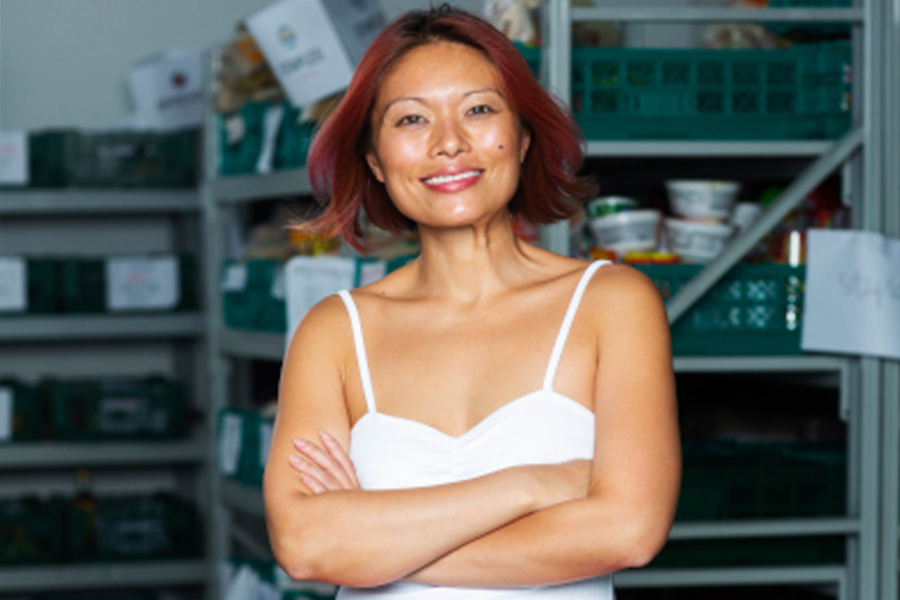PODCAST PEOPLE: A Summary from the Real Leaders Podcast
“I think the world, life, business as we know it has become way more complicated than it should be. If you’re able to bring one simple solution that helps a lot of people to solve their problems, you are successful in your own right. And I genuinely believe that that is the role of every business out there. So if all of us solve different things, collectively, as a community, we should do a lot more good than bad.”
Nichol Ng is the co-founder of Singapore’s first and only food bank, Food Bank Singapore, which aims to end food insecurity of all kinds in Singapore and intends to expand to play a key role in ending food waste and food insecurity on a global scale.
The following is a summary of Episode 131 of the Real Leaders Podcast, a conversation with the co-founder of Food Bank Singapore, Nichol Ng. Watch, read, or listen to the full conversation below.
Tackling Food Waste
Nichol shares that as the only organization of its kind in the entire country, The Food Bank Singapore was met with skepticism. But its innovative intention to eliminate food waste and food insecurity simultaneously has been hugely successful. Since its inception in 2012, the Food Bank has redistributed 802 tons of food to 360 charities, reaching more than 250,000 people in Singapore through its network.
And The Food Bank found renewed purpose and opportunity once the pandemic hit. The lockdown in Singapore meant that many charities suspended operations, stranding the families in need that relied on them. Nichol’s solution with the food bank was to support food infrastructure on as many levels as possible. Instead of using funds to set up soup kitchens, they supported restaurants and distributed meals door to door. They dished out 15,000 meals a day at the peak of operations in June, and redistributed a grand total of one million meals over the course of the lockdown.
“I learned so much from this exercise. Because when we gave the meals door to door, people gave us feedback on yesterday’s food. And that’s when we also realized that hey, they’re also humans, right? Usually when we do food ration dispatch or meals dispatch, we don’t really think of what they actually enjoy eating. Some of us like sweets and some like sour, and so on. Therefore, we learned that we have to respect the people when we dish out the food.”
A New Approach to NGO
Nichol explains that the ultimate goal with The Food Bank is to disband. What makes this organization unique from other NGOs is that it doesn’t seek to achieve something, but rather to bring about an end. Their mission is to eliminate food insecurity in all forms in Singapore by 2025.
“With a business, you’re here to track your P and Ls in order to survive longer. But if you’re here to end something, you don’t need to do that. So you just have to have enough budget to survive and to accomplish your mission.”
Their next step is to create a platform for virtual food banking, and they are in the process of designing an app that will connect donors and beneficiaries, and ultimately eliminate wastage. But achieving food security in Singapore is only the beginning of Nichol’s ambitions:
“We are lucky that in Singapore, it’s very easy for us to redistribute food because we’re so small, and we are relatively efficient as a nation. But actually, for me right now, my biggest vision is to help our neighbors. We want to help people in Malaysia, Philippines, Indonesia, Vietnam, Myanmar to set up their food banks so that they can also help the people that live in those countries.”
Transcript
Connect
Find out more about The Food Bank here:




































